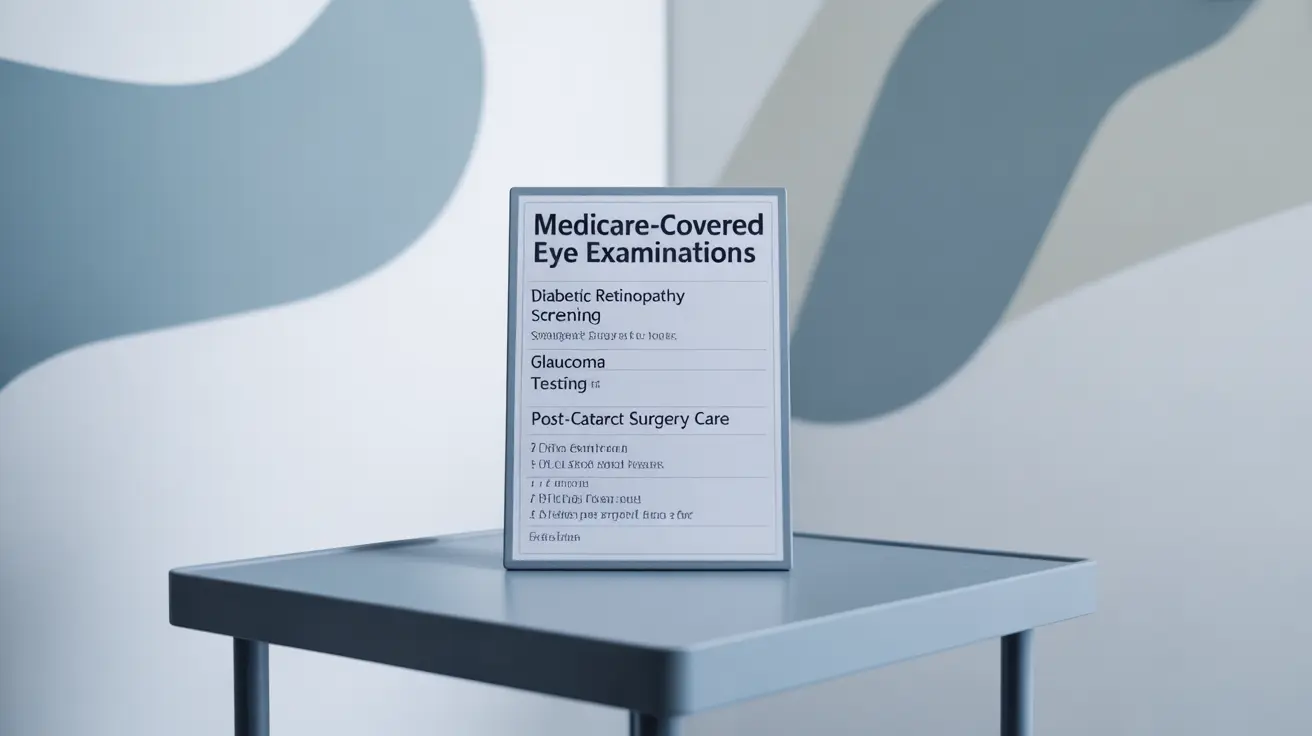Understanding how often Medicare pays for eye exams and what specific services are covered can help you maintain your vision health while managing costs. Whether you have Original Medicare, Medicare Advantage, or are at high risk for certain eye conditions, knowing your coverage options is essential for preventive eye care.
This comprehensive guide breaks down Medicare's eye exam coverage, including coverage frequency, qualifying conditions, and what you can expect to pay out-of-pocket for different types of vision services.
Medicare Coverage for Medical Eye Conditions
Original Medicare (Part B) provides coverage for specific medical eye conditions and diagnostic services. These covered services focus on detecting and monitoring serious eye health issues rather than routine vision care.
Diabetic Eye Exams
If you have diabetes, Medicare Part B covers an annual diabetic retinopathy screening. These comprehensive eye exams are essential for detecting early signs of diabetes-related eye damage and preventing vision loss. After paying your Part B deductible, you'll typically be responsible for 20% of the Medicare-approved amount.
Glaucoma Screening Coverage
Medicare covers annual glaucoma screenings for beneficiaries considered high-risk, including:
- People with diabetes
- Those with a family history of glaucoma
- African Americans age 50 and older
- Hispanic Americans age 65 and older
Macular Degeneration Testing and Treatment
For beneficiaries diagnosed with age-related macular degeneration, Medicare Part B covers diagnostic tests and certain treatments, including injectable medications. Regular monitoring and treatment can help slow disease progression and maintain vision.
Routine Vision Care and Medicare
Original Medicare generally doesn't cover routine eye exams for eyeglasses or contact lenses. However, there are important exceptions to understand regarding vision coverage.
Medicare Coverage After Cataract Surgery
Following cataract surgery with an intraocular lens implant, Medicare Part B will cover:
- One pair of eyeglasses or contact lenses
- The initial post-surgical eye exam
- Follow-up exams as deemed medically necessary
Medicare Advantage Vision Benefits
Many Medicare Advantage (Part C) plans offer additional vision benefits not covered by Original Medicare, including:
- Annual routine eye exams
- Prescription eyeglasses or contact lenses
- Vision correction services
- Discounts on vision care services
Understanding Out-of-Pocket Costs
For covered medical eye exams under Original Medicare, beneficiaries typically pay:
- The Part B deductible (if not already met)
- 20% of the Medicare-approved amount
- Any additional charges if your provider doesn't accept Medicare assignment
Frequently Asked Questions
How often does Original Medicare pay for eye exams related to diabetes, glaucoma, or other medical eye conditions? Original Medicare covers annual diabetic retinopathy screenings for diabetics and yearly glaucoma screenings for high-risk individuals. Other medical eye conditions are covered as often as deemed medically necessary by your healthcare provider.
Does Medicare cover routine eye exams for glasses or contact lenses, and what are the out-of-pocket costs? Original Medicare doesn't cover routine eye exams for glasses or contacts. However, Medicare Advantage plans often include this coverage. For covered medical eye exams under Original Medicare, you pay 20% of the Medicare-approved amount after meeting your Part B deductible.
What eye exams does Medicare Part B cover for cataract surgery and macular degeneration? Medicare Part B covers pre-surgical exams, the surgery itself, post-operative exams, and one pair of corrective eyewear after cataract surgery. For macular degeneration, Medicare covers diagnostic tests and certain treatments, including injectable medications.
Do Medicare Advantage plans cover routine eye exams and vision correction like glasses or contacts? Many Medicare Advantage plans include routine vision care benefits, covering annual eye exams, prescription eyewear, and vision correction services. Coverage details vary by plan, so check your specific plan's benefits.
Who qualifies as high risk for glaucoma screening coverage under Medicare, and how frequently can these screenings be done? Medicare covers annual glaucoma screenings for people with diabetes, those with a family history of glaucoma, African Americans aged 50 and older, and Hispanic Americans aged 65 and older. These screenings are covered once every 12 months for qualified individuals.




